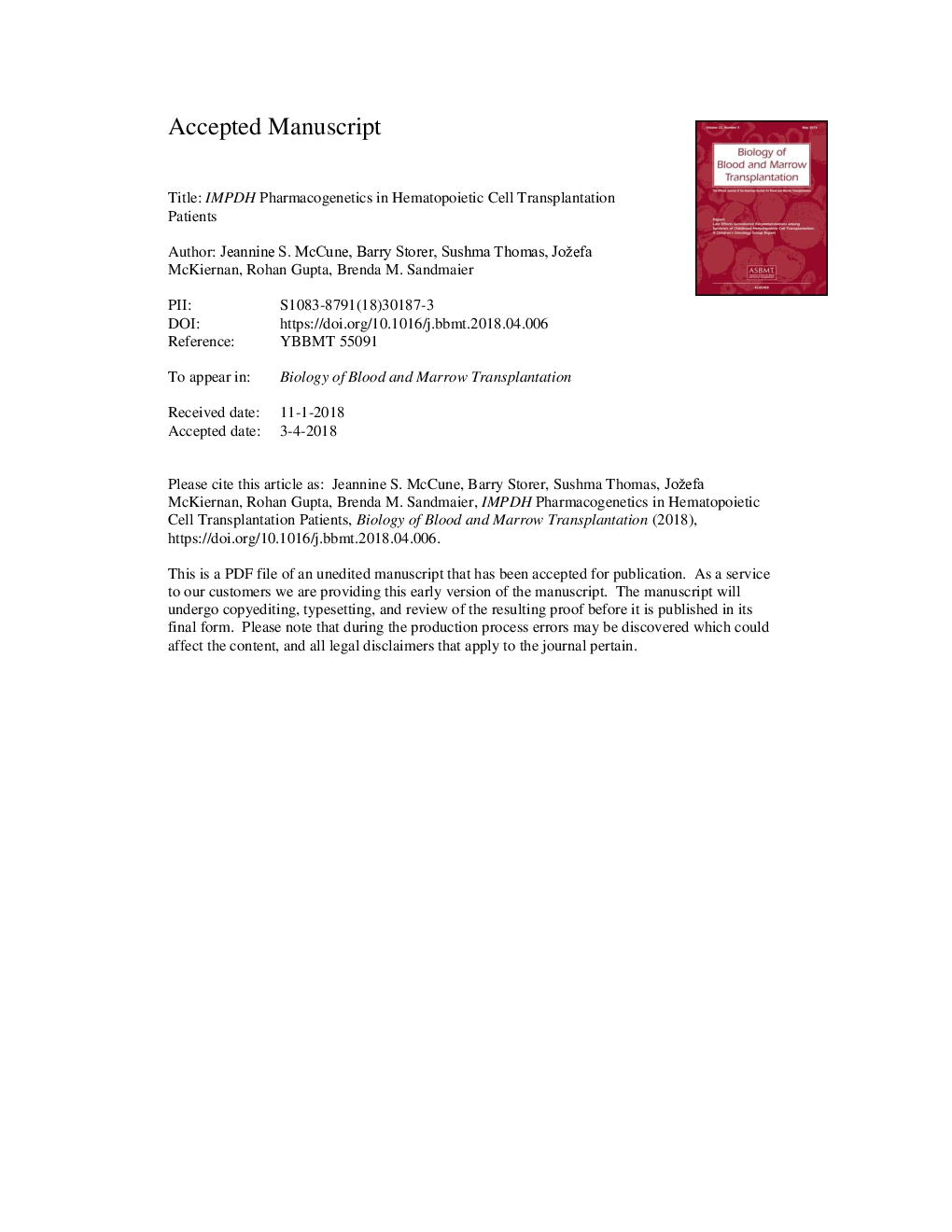| Article ID | Journal | Published Year | Pages | File Type |
|---|---|---|---|---|
| 10157449 | Biology of Blood and Marrow Transplantation | 2018 | 25 Pages |
Abstract
We evaluated inosine monophosphate dehydrogenase (IMPDH) 1 and IMPDH2 pharmacogenetics in 247 recipient-donor pairs after nonmyeloablative hematopoietic cell transplant (HCT). Patients were conditioned with total body irradiationâ+âfludarabine and received grafts from related or unrelated donors (10% HLA mismatch), with postgraft immunosuppression of mycophenolate mofetil (MMF) with a calcineurin inhibitor. Recipient and donor IMPDH genotypes (rs11706052, rs2278294, rs2278293) were not associated with day 28 T cell chimerism, acute graft-versus-host disease (GVHD), disease relapse, cytomegalovirus reactivation, nonrelapse mortality, or overall survival. Recipient IMPDH1 rs2278293 genotype was associated with a lower incidence of chronic GVHD (hazard ratio, .72; Pâ=â.008) in nonmyeloablative HCT recipients. Additional studies are needed to confirm these results with the goal of identifying predictive biomarkers to MMF that lower GVHD.
Keywords
Related Topics
Life Sciences
Biochemistry, Genetics and Molecular Biology
Cancer Research
Authors
Jeannine S. McCune, Barry Storer, Sushma Thomas, Jožefa McKiernan, Rohan Gupta, Brenda M. Sandmaier,
